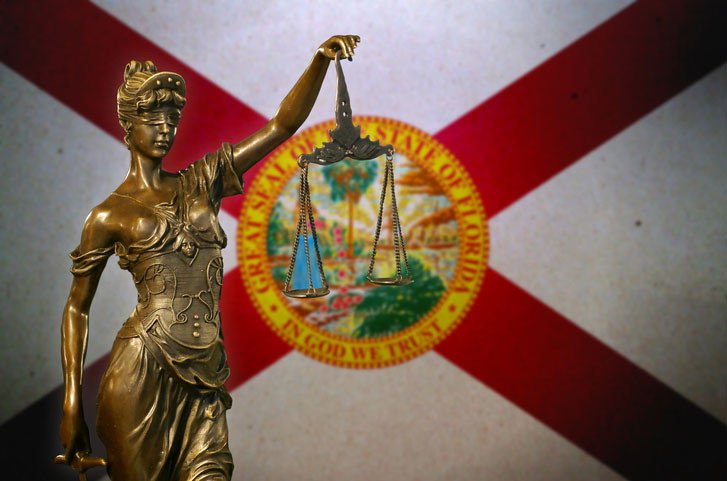Written by Scott Wilson

Florida is multicultural down to its core, a mix of retirees from the northern tier states, bringing in money but also problems of health and aging. They live up and down the Palm Coast alongside Hispanic immigrants with their own culture, assimilation issues, and financial challenges.
The state has also been a mecca for LGBTQ+ individuals, of all ages, yet lately has come crashing down on trans and gay rights. So much so you’d think the 1950s Johns Committee that persecuted gay and lesbian Florida teachers had come back to life.
Social work is not a field where you want amateurs dabbling in either clinical or systemic interventions. State credentials set a high bar for education and professionalism.
Between zombie legal witch hunts going after marginalized groups and more modern challenges like climate change flinging eighteen foot storm surges into the Big Bend and displacing thousands, it’s a complex environment for social workers. Yet they have an obligation to find compassionate and effective solutions for people facing all those various issues.
And this is exactly why Florida social workers in both clinical and macro roles are either licensed or certified to practice in the state.
Three Kinds of Credentials Lead to Two Main Roles in Florida Social Work
One thing that makes life easy for anyone sorting out their options for social work credentials in Florida is that they have very similar requirements no matter which way you go. Those credentials come through the state’s licensing authority, the Florida Board of Clinical Social Work, Marriage & Family Therapy and Mental Health Counseling.
And there are only two types of terminal credentials here, one for clinical practice at the micro level and the other aimed at administrative social work at the mezzo and macro levels:
- Licensed Clinical Social Worker (LCSW) - Clinical social work license that requires an MSW and two-years of post-MSW experience and grants the legal authority for independent clinical practice.
- Certified Master Social Worker (CMSW) - Voluntary administrative credential that requires an MSW and three total years of experience that denotes high-level expertise without granting additional legal authority and without a defined scope of practice.
Additionally, the Florida board requires interim clinical practitioners, in between their college graduation and their full licensure as LCSWs, to hold the Registered Clinical Social Worker Intern (RCSWI) credential.
All social work licensing, registration, and renewal services are provided through the Florida Board of Clinical Social Work, Marriage & Family Therapy, and Mental Health Counseling.
In practical terms, then, there are only two tracks—clinical and administrative.
But since a license isn’t actually required for mezzo- and macro-level administrative work outside of the clinical setting, most license candidates aim squarely for the LCSW. The CMSW can be thought of as an optional credential that denotes a unique level of expertise, rather than a required credential that grants authority within a clearly defined scope of practice.
The RCSWI has education and practicum requirements identical to the LCSW, and is intended only to allow legal, supervised clinical practice while you complete your experiential, administrative, and testing requirements for that license.
The Essential Requirements for All Florida Social Work Credentials Are Very Similar

The main qualification for becoming any kind of licensed social worker in Florida is to first earn a Master of Social Work degree from a CSWE-accredited university.
There are thirteen of those in Florida, and they have the full menu of specializations that hone your skills for post-licensure practice: from the University of West Florida’s Interdisciplinary Minor in Aging Studies to Florida Gulf Coast University’s Medical Social Work Certificate.
It doesn’t matter if this is a standard MSW or a fast-track advanced standing MSW program that builds on your Bachelor of Social Work degree. Clinical licensees, however, must show that their coursework included a specific set of clinical course credits. CMSW candidates must have coursework in eight different non-clinical content areas. In both cases, the MSW must fulfill supervised practicum placements.
Beyond the MSW, each license requires:
- Two years of supervised post-master’s experience on the job (a total of three years for the CMSW, but only two of those must be post-MSW)
- Passing a required national examination
- Paying required fees
- Meeting standards for health, criminal, and ethical behavior
LCSW candidates also have an extra slate of short courses to take in areas like law, HIV, and domestic violence before they can become licensed.
Handling the Paperwork and Filing Requirements for Any Sort of Florida Social Work License or Registration
You’ll find that the Board licensing website offers clear instructions and descriptions of both requirements and the application and renewals process. Applications are made online, and you can check the status of yours as it proceeds through the Board’s various checks and confirmations.
Florida’s licensing system even supports the old school application method. You can apply by mail by downloading the required forms from the website and filling them out manually.
In either case, you’ll have to provide:
- An official transcript for your MSW program, sent directly by the school either by sealed envelope or through secure electronic submission
- A verification of your practicum placement provided by an official of the school
- If you are a graduate of an advanced standing MSW program, you may need to provide additional documentation about the coursework from your BSW program that qualified you for advanced standing status
- For LCSW vs. CMSW applicants, you’ll need to submit details of your post-master’s experience, supervised and unsupervised; your supervisor will also need to directly verify that experience
- LCSW and CMSW applicants also have to take and pass the relevant ASWB exam for their type of license
By law, all initial applications to the Board must be reviewed within 30 days. But in practice, the turnaround is frequently much faster than that, with processing times of under a week.
Licensure by Endorsement Offers a Route to the Good Life Here in Florida for Social Workers Licensed in Other States

There’s another path to licensure for LCSW and CMSW credentials in Florida for social workers who have already undergone the rigorous training to become licensed in other states. While Florida does not offer reciprocity with other state licenses, they do allow licensure applications by endorsement.
Licensure by endorsement is basically a way to skip over some of the paperwork that you will already have completed with respect to your education, supervised experience, and official examinations to become a clinical or master social worker.
Instead, you can request a Florida Certification/License Verification Form be completed by the state authority behind your existing license. Submitted directly to the Board, it will cover all the basics that are common to social work licensing in every state.
There will still be some Florida-specific steps you will need to take, particularly with respect to unique state Laws and Rules and other qualifications that aren’t necessarily used in every state.
Provisional Licensing Offers Interim Authority While Fulfilling Other Requirements
 While you’re waiting for the approval for licensure by endorsement, or if some glitch in your education allowed you to get to the stage of practicing clinically without having met all other requirements, you may be offered a provisional license for up to two years.
While you’re waiting for the approval for licensure by endorsement, or if some glitch in your education allowed you to get to the stage of practicing clinically without having met all other requirements, you may be offered a provisional license for up to two years.
Provisional licenses are separated from registered interns in that they are an actual license. But they are similar in that you are only allowed to practice under supervision until you can become fully licensed.
Provisional licenses are only valid for 24 months, although that should be plenty of time to get up to speed with whatever roadblocks have held up your standard license.
Keeping Current by Renewing Your Florida Social Work Credentials

Every Florida social work credential has to be renewed periodically. Currently, the renewal period is every two years.
For administrative convenience, no matter when your license was issued, it expires on the same day as every other social work license: March 31 of every odd-numbered year.
Registered Clinical Social Work Interns do not have a renewal process; instead, you must progress to becoming an LCSW within five years.
Renewal is straightforward, but it does require that you keep up with continuing education requirements. With the fast pace of social change in Florida, whether through changes in state law, new groups of immigrants, or skyrocketing health insurance costs that are pushing seniors to the brink, social workers here benefit from a required 15 continuing education hours per year to maintain their licenses.
That’s all part of ensuring that Floridians have the best qualified social workers to serve them at any level of licensure, though. And it’s an important way to keep yourself current with new developments in Florida’s social justice scene, whether it’s recent insights on the world of poverty experienced by families bouncing between extended stay motels in Kissimmee on the verge of homelessness or the latest settlements in the ongoing debate over Don’t Say Gay.
Although in the end it’s a bureaucratic requirement, it’s something that most dedicated social workers take on because they want to get better at what they do. That resolution and dedication is how social workers of all kinds make Florida a little bit better with each passing year.
